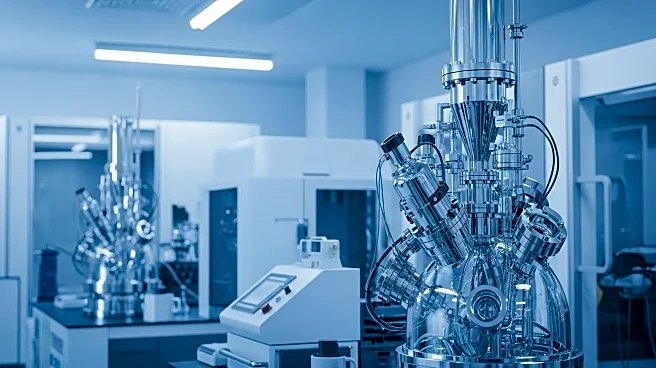What's Happening?
IMARC Group has released a comprehensive report analyzing the costs and market trends associated with establishing a Modafinil (Provigil) manufacturing plant. Modafinil, a central nervous system stimulant, is primarily used to treat narcolepsy, obstructive sleep apnea, and shift work sleep disorder. The report details the complex chemical synthesis, purification, crystallization, and formulation processes required for production, emphasizing the need for precision engineering and adherence to Good Manufacturing Practices (GMP). It also covers capital investment, operating costs, raw material procurement, machinery requirements, and profitability projections, providing a feasibility framework for investors and industry stakeholders.
Why It's Important?
The report highlights the growing importance of Modafinil in the pharmaceutical market due to its efficacy and lower abuse potential compared to traditional stimulants. As sleep-related disorders and cognitive health awareness increase, the demand for Modafinil is expected to rise. The report provides valuable insights for investors and entrepreneurs looking to capitalize on this trend, offering guidance on plant setup, regulatory compliance, and market expansion strategies. However, challenges such as regulatory scrutiny, complex manufacturing requirements, and market competition from generic manufacturers remain significant factors influencing the industry.
What's Next?
Investors and industry stakeholders may consider strategic investments in technology, research and development, and GMP infrastructure to establish a competitive and sustainable Modafinil production business. The report suggests that advancements in synthetic chemistry and cost-effective production technologies could enhance scalability and affordability. Additionally, navigating regulatory approvals and maintaining consistent product quality will be crucial for securing market share and achieving long-term profitability.
Beyond the Headlines
The report also addresses the ethical and environmental considerations of pharmaceutical manufacturing, emphasizing the importance of waste treatment systems and emission control units to comply with environmental regulations. As the industry evolves, stakeholders must balance profitability with sustainable practices to meet growing consumer and regulatory demands.









